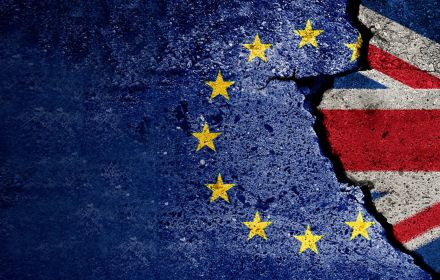Investing in Europe: Outstandingly Different
A high level of legal stability, reasonable corporate freedom, and a large domestic market with a diversity of locations are just some of the many qualities of this economic region.
Europe continues to grow together. Even if the media sometimes give a different impression. Economically, the European states have never been so closely intertwined, and intra-European mobility has never been as extensive as it is today.
The currently observable decoupling resp. derisking between China and the USA, as well as the increasing tendency of important foreign markets to close themselves off, present significant challenges to the EU-27 countries with their approximately 450 million consumers and over 13 trillion euros in gross national product. In addition, rising commodity prices and the resurgent pandemic are putting the brakes on the economy. The Russian invasion of Ukraine and subsequent sanctions by the Western world represent another factor of uncertainty.
But the international standing and sovereignty of the economic community is growing. While the economic policy parameters are gradually being further harmonized, there are still numerous differences that make each market unique due to cultural and legal aspects. Occasionally, the bureaucratic effort is greater than it needs to be, but there are few regions of the world where companies can act as freely and, at the same time, with the same level of legal certainty as they can in Europe.
Germany, with a population of over 80 million, is by far the largest economy in Europe and the country is still considered one of the most international economies in the world. Exports account for about 50% of the annual gross domestic product, making Germany one of the three largest trading nations in the world. The title of the world's largest exporter will be claimed by China in 2020 (2.5 trillion US dollars), followed at a great distance by the USA with exports worth around 1.6 trillion US dollars. German exports amounted to around 1.5 trillion US dollars. In June 2021 alone, Germany exported goods worth 118.7 billion euros and imported goods worth 102.4 billion euros. While exports in June almost returned to pre-coronavirus pandemic levels, they registered strong growth of 23.6% compared to June 2020; imports increased by a corresponding 27.0%.
We guide you through this diverse investment landscape, finding numerous opportunities for you and keeping an eye on the hidden risks.
In our study, the German British Business Outlook 2023, and our survey on Brexit, Survey: The grave consequences of Brexit, we have analyzed the impact of the UK's exit from the EU and provide recommendations for action for affected companies. One key finding is that more than half of the companies we surveyed expect a drop in sales as a result of Brexit. This expectation is due to administrative costs, higher logistics costs and rising customs costs.
Watch Now: The EU at the International Business Summit 2022
International Business
You are a German company and want to expand globally, transform your foreign business activities or are looking for interesting investment objects? Or are you an international investor with the goal of expanding your business opportunities in the German or European market? No matter where you come from, what your ambition is or what language you speak, KPMG International Business offers you the right support.
We cluster our cross-border business into the four market regions Africa/Middle East, Americas, Asia/Oceania and Europe, each with specific challenges and market conditions. In addition, we are represented in numerous countries by German-speaking experts on site to offer you the best possible local advice. Feel free to contact your KPMG country expert and we will take care of your concerns.
Featured
Publications
Lutz Hoffmann
Director, Audit, Head of Country Practice Netherlands
KPMG AG Wirtschaftsprüfungsgesellschaft
Carsten Döring
Partner, Tax, Head of Branch Office Kiel, Head of Country Practices Denmark and Norway
KPMG AG Wirtschaftsprüfungsgesellschaft
Dietmar Kaupp
Director, Tax, Head of Country Practice Switzerland
KPMG AG Wirtschaftsprüfungsgesellschaft
Petra Mayran
Director, Audit, Head of Country Practice France
KPMG AG Wirtschaftsprüfungsgesellschaft
Nikolaus Schadeck
Partner, Audit, Head of Country Practice United Kingdom
KPMG AG Wirtschaftsprüfungsgesellschaft
Karl Spangler
Partner, Tax, Head of Country Practice Austria
KPMG AG Wirtschaftsprüfungsgesellschaft
Mario Urso
Partner, Tax, Head of Trade & Customs
KPMG AG Wirtschaftsprüfungsgesellschaft












